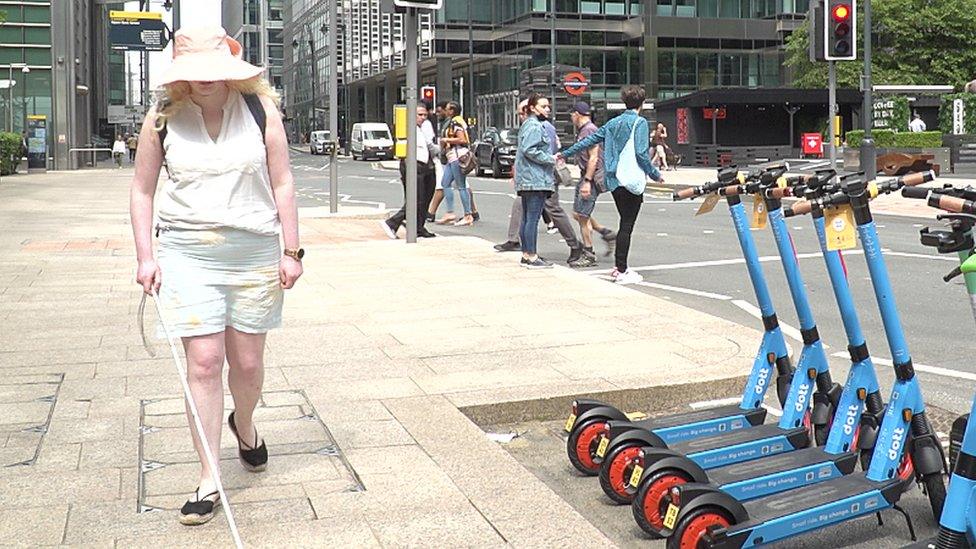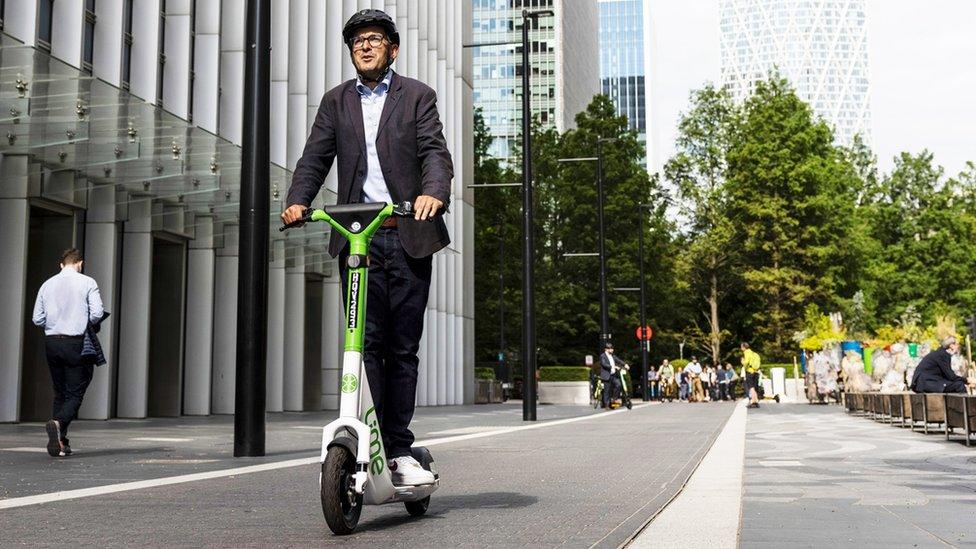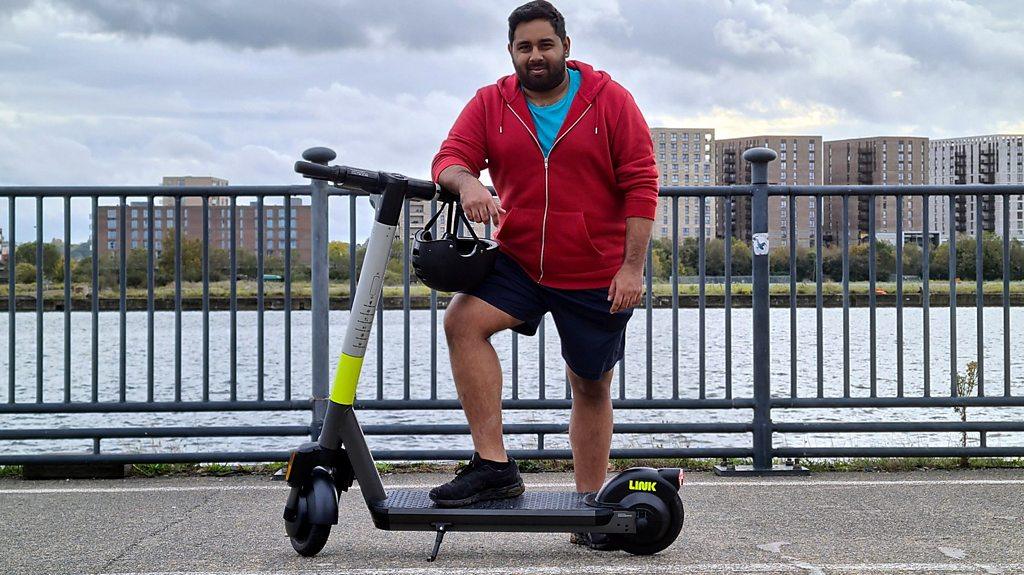E-scooters 'not safe' without audible signals
- Published

Karishma Shah says e-scooters make her anxious to walk along pavements
A visually impaired woman from London says e-scooters are not safe enough to be used across the city as they do not have audible signals.
The signals, which alert pedestrians to the silent e-scooters, will not be installed for at least two months.
Transport for London (TfL) said in May the e-scooters would have audible warning systems that could be used without riders adjusting their grip.
It now says that all e-scooters on the rental scheme are fitted with bells.
The RNIB (Royal National Institute of Blind People) said e-scooters posed potential risks to blind and partially sighted people because "they are fast-moving, difficult to detect, and are often ridden on the pavement despite this being illegal".
London's walking and cycling commissioner, Will Norman, said the trial could not be stopped to fit them.
He said: "We can't stop the trial before everything is brought in because we need to continue to learn and continue to make improvements.
"New features will probably come in over time if and when concerns are raised."
But Karishma Shah said it was a "massive risk".
"I don't think they should have been released without the audible signals or any form of inclusivity because we want to make them as safe as possible, not just for the riders but for every user group - people who use pavements, disabled people, older people, non-disabled people."

Trials are taking place across the country to see if e-scooters can be safely ridden on roads
London has become the latest UK city to launch a year-long trial in which e-scooters are available to rent. Riders can rent them in Canary Wharf, Ealing, Hammersmith and Fulham, Kensington and Chelsea and Richmond.
The scooters cannot be ridden on pavements and have been programmed to have a top speed of 12.5mph (20 km/h).
It is illegal to use privately owned e-scooters on public roads, pavements and cycle routes.
Ms Shah, who is from Croydon in south London, said she feared e-scooters as she has almost banged into them in the past.
"I fear things that I cannot hear but that I know are coming really fast and I fear that I have to consciously make so much effort to hear all these things just to carry on living like how a non-disabled person would," she said.
Transport for London said it would be at least the end of July before audible sensors were installed on the e-scooters.
E-scooter operators, Lime, TIER and Dott - which are involved in the trial - said they could not provide exact dates for audible sensor installation, but that a shortlist of sounds was being tested.
Dott said it would have its first sound file tested in defined laboratory conditions by representatives of RNIB by the end of July but added signalling would not be rolled out immediately as the balance between audible detectability and noise pollution needed to be tested.
The RNIB said: "While having a properly researched and designed safety sound would help with detectability, we also need robust enforcement against pavement riding and parking, adequate off-pavement parking to be provided and the appropriate street infrastructure in place to keep pedestrians safe."
- Published5 February 2020

- Published17 December 2020

- Published4 September 2020
